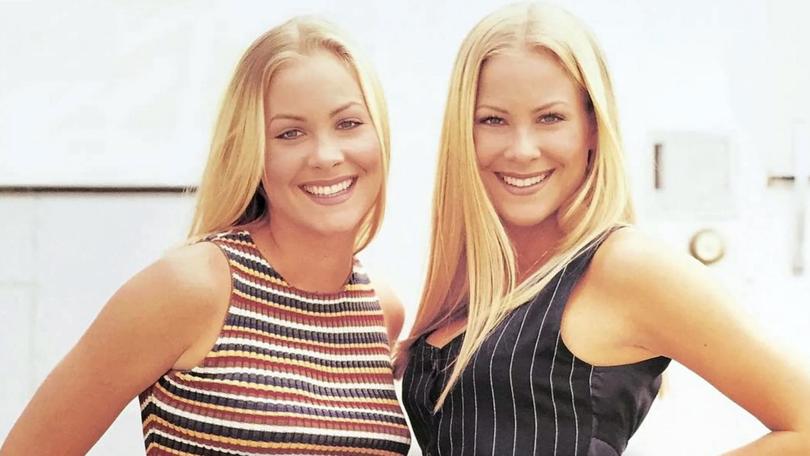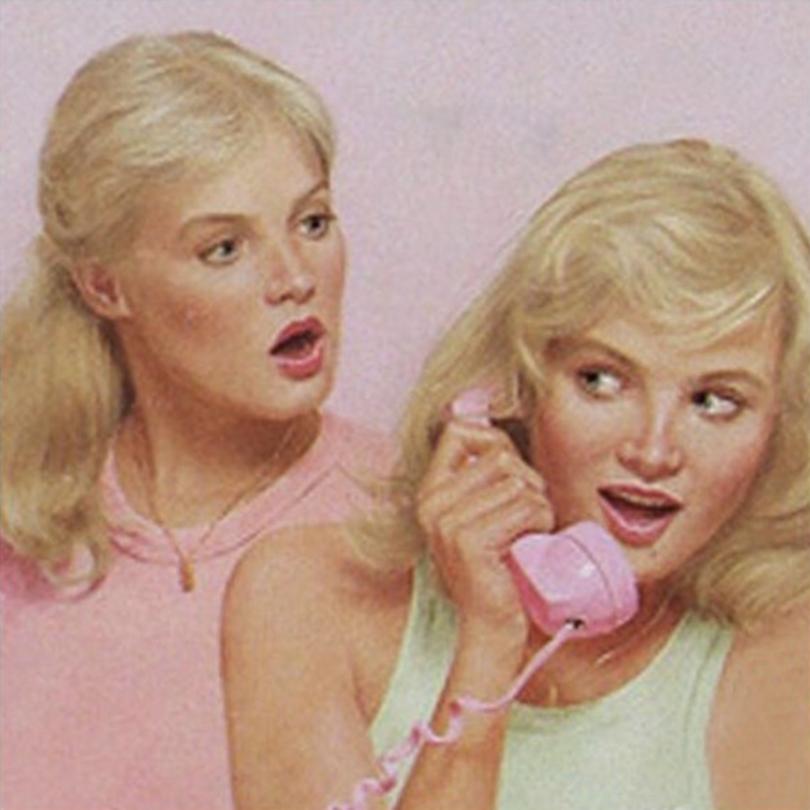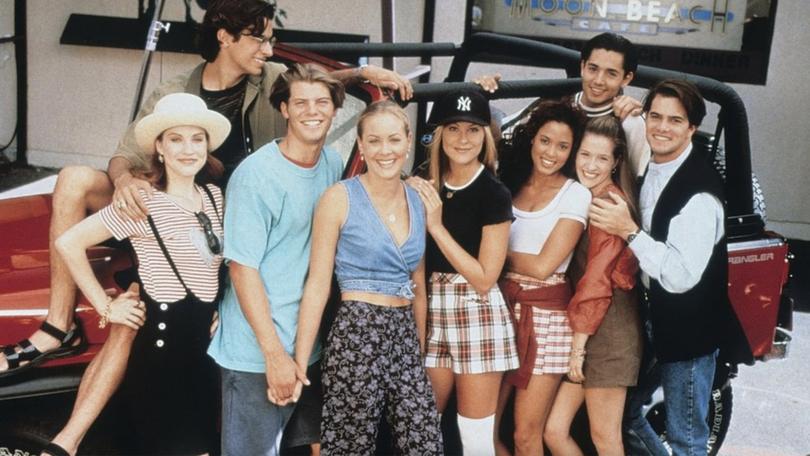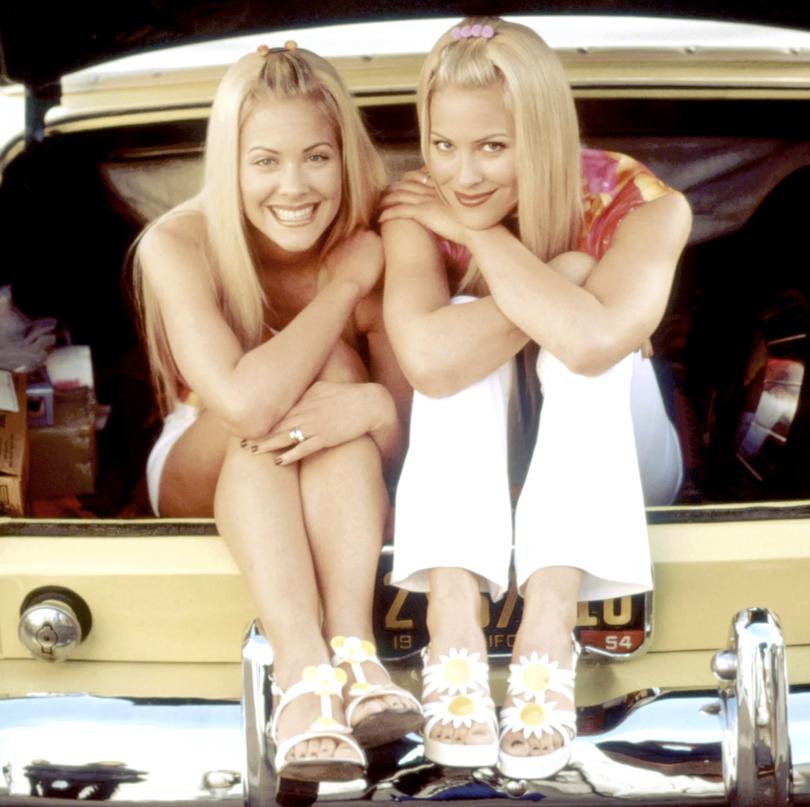Sweet Valley High creator Francine Pascal left an enduring legacy
Francine Pascal died over the weekend. If you were a girl growing up in the 1980s and 1990s, that name means something special to you.

Francine Pascal died over the weekend. That name might mean nothing to you. But if you were a girl growing up in the 1980s and 1990s, Pascal has a special place in your childhood memory bank.
She was the creator of Sweet Valley High books, which became a cultural empire that spanned almost two hundred books, nine spin-off series, a 1994 TV show and even a board game.
The first book was published in 1983 with a new tome in the main series released monthly until July 1998. For 15 years, Sweet Valley High told the story of Jessica and Elizabeth Wakefield, 16-year-old California twins who were blessed with blue-green eyes, perfect blonde hair, popularity, hunky boyfriends and a sun-kissed life of school, dating, friends and fun.
Sign up to The Nightly's newsletters.
Get the first look at the digital newspaper, curated daily stories and breaking headlines delivered to your inbox.
By continuing you agree to our Terms and Privacy Policy.They were two halves of the same person – the dependable and studious Elizabeth and the frivolous and irresponsible Jessica. Before women decided who they were most similar to out of Sex and the City’s Carrie, Miranda, Charlotte and Samantha, they were debating whether they were a Jessica or an Elizabeth.
There were adventures in France with a prince, New York with a princess, cheerleading camp and modelling contests. And there were misadventures with scam artists, escaped prisoners, homicidal look-a-likes, kidnappers, predatory sex pests, and delusional boys who thought they were a werewolf and an actual vampire (the later books were weird).

For many Gen X and older Millennial women (although not exclusively), the Sweet Valley High books were a window into another world, a specific slice of white, middle-class America.
“The Americana aspect was a huge part of its appeal,” Anna Carey, a Dublin-based Gen X-er who co-hosts with Karyn Moynihan the Sweet Valley High recap podcast Double Love, told The Nightly. “It was so exotic to those of us who grew up thousands of miles away. The first time I went to the US, I was 21 and when I saw cheerleaders for the first time.
“It was like seeing a faun from Narnia or something — these creatures from fantasy literature had come to life and were doing a charity collection outside their high school in Boston. Even the fact they all had cars was like a fantasy world to an Irish kid in the 1980s.
“This version of America might as well have been on another planet.”
Pascal didn’t write every book in the series. She created the concept, built out the world and penned the first few. Then the books hired ghostwriters who would all be published under the name Kate Williams. But it was Pascal’s outlines and vision that powered this particular literary machine.
It resonated because it drew on the tropes of TV soap operas where everything was dramatic and compelling. Pascal had written for soaps in the 1960s and wanted to recreate the vibe in a teen book series.
You could burn through a book in a couple of hours and be either scandalised by Jessica’s behaviour or be jealous of the teens’ high school experience so different to your own. This was a town where every weekend, the teenagers were at an underage beach disco or had pool parties and shopping sprees.

The earlier Sweet Valley High books blended those conventions with “after-school special” lessons around racism, eating disorders, illicit drugs, bad boys, teen sex and family breakdowns.
Although it often didn’t get it right. The morality and blindspots of 1980s American culture mean many of the story beats and characterisations play awkwardly in 2024. There are a lot of mentions of dieting and over its run, there were few non-white characters and even fewer instances when their stories weren’t related to their “otherness”.
But the books were compulsive, accessible and escapist. And during its era, you could reliably find them in most public and school libraries – even in Australia.

The enduring legacy of Pascal and her creation means every few years, there’s a buzz about another movie or TV adaptation.
Some of the aborted attempts have included a feature screenplay from the Oscar-winning writer of Juno, Diablo Cody, and a series reboot from Josh Schwartz and Stephanie Savage, the team behind The OC and Gossip Girl.
That none have succeeded beyond the Saturday morning teen show that ran from 1994 to 1998, starring Brittany and Cynthia Daniel, so far, indicates that Sweet Valley High is still considered something of a lightweight rather than a cultural powerhouse.
“The fact it was read mostly by girls means that they haven’t been given the pop cultural acknowledgment they deserve, because men have primarily been the cultural gatekeepers,” Carey argued.
“So, Star Wars (which isn’t just loved by men but is loved by a lot of men) becomes a central part of popular culture, but the mostly girly stuff doesn’t.”
But for the girls - now women - who loved Sweet Valley High, they always will.

